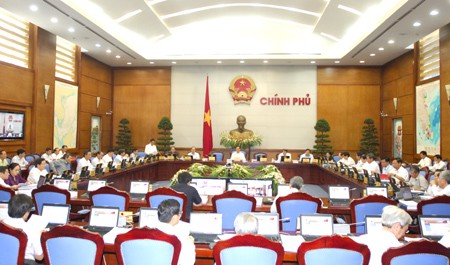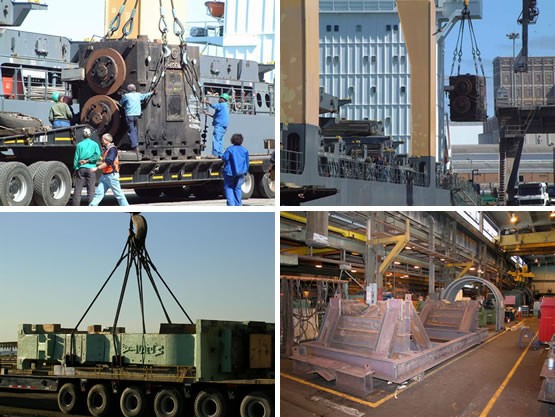(VOVworld) – Inflation continues to be curbed, market prices are stable and government measures to remove difficulties for businesses are paying off. These results have provided momentum for further economic growth in the remaining months of this year.
 |
| A government meeting |
According to the General Statistics Office, Vietnam’s economic performance improved in the first half of this year. Measures set out by the government resolutions, including Resolution No2 on removing obstacles facing businesses, supporting the market, resolving bad debts, stimulating demands and reducing inventories, have helped in a stabilized macro-economy and sustainable development. In the first half of this year, the GDP stood at 4.9%, and the Consumer Price Index (CPI) increased by only 2.4%, the smallest increase in the last 10 years. Nguyen Duc Thanh, Director of the Price Department of the General Statistics Office, told VOV: “The CPI in the first 2 months of this year increased remarkably but was stable and likely to decrease since March. The CPI in the first half of this year increased slightly. This positive sign shows that inflation control has gained results and that sectors and localities have strongly implemented the government measures”.
 |
Growth was reported in almost all economic sectors, including agriculture, forestry, aquaculture, industry, and service. Industrial production, particularly processing, maintained the recovering pace, and the service sector posted higher growth than in the same period last year. Exports continued to expand, reaching more than 62 billion USD in the first half of the year, up 16%. The Official Development Assistance (ODA) and Foreign Direct Investment (FDI) were higher than last year. The government’s goal of inflation control, macro-economic stabilization and reasonable growth has been achieved. But, according to Doctor Vo Tri Thanh, Deputy Head of the Central Institute for Economic Management, this is only preliminary result. Thanh says the Vietnamese economy needs more time to recover: “Vietnam cannot neglect macro-economic stabilization because macro-economic stabilization is a value of time and efforts to rebuild confidence in the market for both domestic and foreign investors. Whatever measure we take, it is necessary to connect macro-economic stabilization with inflation control, budget capacity, public debts, the stability of the financial and banking sectors, and Vietnam’s balance of payments”.
At the government’s regular June meeting, Prime Minister Nguyen Tan Dung urged localities to address major economic problems such as low growth rates in some sectors and low purchasing power. The government pledged more incentives to support the market and businesses. Vietnam is gearing up to achieve a growth rate of 5.5% for all of 2013.